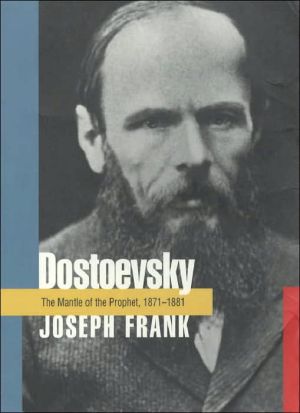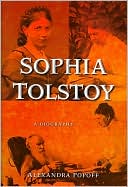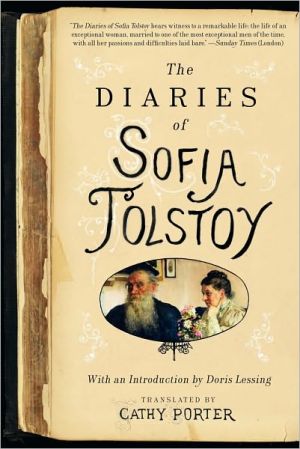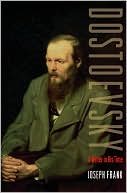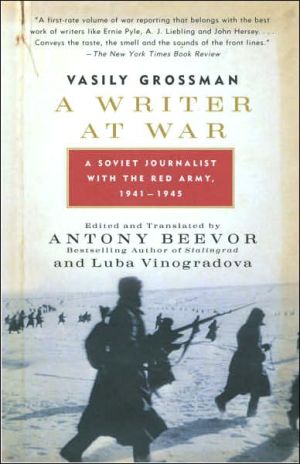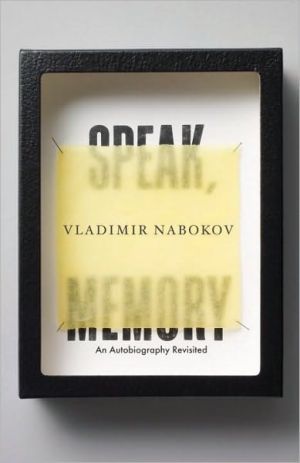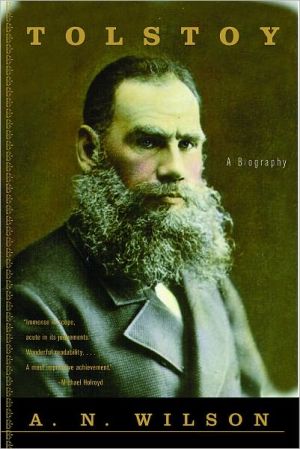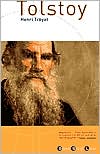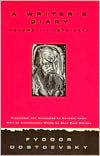Dostoevsky: The Mantle of the Prophet, 1871-1881
This fifth and final volume of Joseph Frank's justly celebrated literary and cultural biography of Dostoevsky renders with a rare intelligence and grace the last decade of the writer's life, the years in which he wrote A Raw Youth, Diary of a Writer, and his crowning triumph: The Brothers Karamazov.\ Dostoevsky's final years at last won him the universal approval toward which he had always aspired. While describing his idiosyncratic relationship to the Russian state, Frank also details...
Search in google:
This fifth and final volume of Joseph Frank's justly celebrated literary and cultural biography of Dostoevsky renders with a rare intelligence and grace the last decade of the writer's life, the years in which he wrote A Raw Youth, Diary of a Writer, and his crowning triumph: The Brothers Karamazov.Dostoevsky's final years at last won him the universal approval toward which he had always aspired. While describing his idiosyncratic relationship to the Russian state, Frank also details Doestoevsky's continuing rivalries with Turgenev and Tolstoy. Dostoevsky's appearance at the Pushkin Festival in June 1880, which preceded his death by one year, marked the apotheosis of his career--and of his life as a spokesman for the Russian spirit. There he delivered his famous speech on Pushkin before an audience stirred to a feverish emotional pitch: "Ours is universality attained not by the sword, but by the force of brotherhood and of our brotherly striving toward the reunification of mankind." This is the Dostoevsky who has entered the patrimony of world literature, though he was not always capable of living up to such exalted ideals.The writer's death in St. Petersburg in January of 1881 concludes this unparalleled literary biography--one truly worthy of Dostoevsky's genius and of the remarkable time and place in which he lived. The New York Times Book Review A monumental achievement....[A] multifaceted tribute from an erudite and penetrating cultural critic to one of the great masters of 19th century fiction. — Michael Scammell
Chapter One \ \ \ Introduction\ The last ten years of Dostoevsky's life, the subject of the present volume, mark the end of an extraordinary literary career and of a life that touched both the heights and depths of Russian society. It became customary during these years, even among people who disagreed (and sometimes quite violently) with Dostoevsky on social-political issues, to regard him with a certain reverence, and to feel that his words incarnated a prophetic vision illuminating Russia and its destiny. One of his favorite poems, which he often read aloud, was Pushkin's powerfully evocative "The Prophet"; and each time he did so, his mesmerized listeners invariably felt that he was assuming this function himself. The unprecedented stature he attained astonished even his friends and admirers, and transcended all personal and political boundaries. In the eyes of the vast majority of the literate public, he became a living symbol of all the suffering that history had imposed on the Russian people, as well as of all their longing for an ideal world of (Christian) brotherly love and harmony.\ A number of factors contributed to the unique status that Dostoevsky enjoyed during the 1870s. His now little-read Diary of a Writer, a monthly periodical written entirely by himself for two years, commented on the passing scene with passion, verve, and eloquence, and also included literary reminiscences, short stories, and sketches. This personal periodical was an enormous success, reaching a larger audience than any previous journal of comparable intellectual seriousness; and although many of its ideasdo not represent Dostoevsky at his best, they elicited a wide response that made him the most important public voice of the time. It was the Diary of a Writer, in combination with his appearances on the platform as reader and speaker, that helped to create his "prophetic" status. Moreover, during the last two years of his life he held all of literate Russia spellbound with the monthly installments of his greatest novel, The Brothers Karamazov. Its gripping theme placed the murder of a father in a vast religious and moral-philosophical context; and no Russian reader of the time could avoid associating its deeply probing pages with the increasingly frequent attempts then being made to assassinate the Tsar.\ Nor was Dostoevsky averse to assuming such a prophetic role, one that he could well have felt had been accorded to him by destiny itself. His life had placed him in an extraordinary position from which to understand the problems of Russian society, and his artistic-ideological evolution embodies and expresses all the conflicts and contradictions that made up the panorama of Russian social-cultural life. Moreover, at no moment was Russian opinion more ready to seek guidance than in the crisis period the country was then living through. This stormy and unsettled time reached its climax, just a month after Dostoevsky's own death, with the assassination of Alexander II, the Tsar-Liberator whom he revered.\ To place Dostoevsky's triumphal apotheosis in a proper perspective, let us glance briefly at his life up to this point. Born in 1821, he belonged to a family legally classified as nobility according to the table of ranks established by Peter the Great. But this was simply a civil service ranking and did not provide his family with a social status equal to that of the established gentry class of landowners from whom, for example, Turgenev and Tolstoy—Dostoevsky's most important literary contemporaries—were descended. Mikhail Andreevich, Dostoevsky's father, was an army doctor who had risen through the ranks, and his parents had belonged to the provincial clergy, a group in Russia whose prestige was far from elevated. The family of his mother was of the merchant class, and though it had acquired a certain degree of cultivation, this origin still placed it on the lower rungs of the Russian social ladder. Dostoevsky's own position in the Russian hierarchy was thus ambiguous. He was legally, but not socially, equal to the scions of the gentry; and from remarks in a letter about Turgenev, we know how greatly he resented the superficial amiability of his typically aristocratic manners. The intensity of Dostoevsky's feeling for the theme of humiliation thus very probably sprang from the anomalies of his own situation.\ Whatever the personal moral defects of Dostoevsky's father, which have been amply explored elsewhere, Mikhail Andreevich conscientiously looked after his family and provided his sons with the best possible education. He sent them to private schools to shield them from corporal punishment, and tutors came to the house to give instruction in French and religion. Dostoevsky recalled having learned to read from a religious primer, and he also remembered the annual pilgrimages with his pious mother to the monastery of the Trinity and Saint Sergei, about sixty versts from Moscow, as well as the visits to the many cathedrals within the city itself. He was thus taught to revere the Russian religious tradition, and attributed a decisive influence on his later development to these early impressions. This religious aspect of his education again sets him off from the usual pattern of the gentry class (though not all, to be sure, since the devout Slavophils were of the same stock). But for the most part, religious faith among the upper class had been undermined by Voltaire and eighteenth-century French thought, and gentry children received very little, if any, instruction in religion, whose precepts of self-sacrifice and reverence for martyrdom they absorbed mainly from their servants.\ Dostoevsky's father had destined his two older sons, Mikhail and Feodor, for military careers, and Feodor succeeded in passing the examination for entrance into the Academy for Military Engineers in St. Petersburg. He thus received the education of an officer and a gentleman, though he had no interest whatever in military engineering and apparently no talent for it either. Luckily, the academy also included courses in Russian and French literature, and he emerged with both a genuine appreciation of French Classicism (he particularly admired Racine), as well as an increased knowledge of the very latest productions of socially progressive writers like George Sand and Victor Hugo, with whom he was already partially familiar. Literature had been his passion ever since learning to read, and he had long ago decided that he wanted to become a writer like his idol, Pushkin; he said that if he were not already wearing mourning for his mother, who died in 1837, he would have worn it when Pushkin was killed in a duel in the same year. One of Dostoevsky's greatest public triumphs, just a year before his death in 1881, was the speech he made at the ceremonies accompanying the dedication of a monument to Pushkin in Moscow.\ Long believed, according to local rumor, to have been murdered by his serfs, though officially reported as being overcome by an apoplectic stroke, Dostoevsky's father went to his grave in 1839. Some recent investigation has cast doubt on the murder story, based entirely on hearsay and rejected by a judicial investigation at the time; but it has been extremely popular since Freud's famous article on "Dostoevsky and Parricide." It cannot be established whether Dostoevsky himself believed the rumors, well known to the family, that his father had been murdered. A small income from the estate allowed him to resign his army commission in 1844, primarily, no doubt, to devote himself to literature, but also because one of his official duties—the supervision of the disciplinary punishment of flogging—had revolted him to the core. He had begun to write seriously years before, and two of his poetic tragedies, the most prestigious literary genre of the time, have regrettably been lost. He was soon swept up, however, in the new literary movement sponsored by the fiery critic Vissarion Belinsky, who had become converted to Utopian Socialism. Belinsky urged the members of the new Russian literary generation to turn their attention to the world around them, and particularly to follow the lead of the Gogol of The Overcoat and Dead Souls in revealing the glaring injustices of Russian society. Gogol was very far from being a progressive (quite the contrary!), and his intention was satirical and comic rather than subversive; but his sharp eye for the incongruities of Russian society objectively exposed all of its morally abhorrent reality.\ The young writers who grouped themselves around Belinsky's program came to be known as the Natural School, and they included many of the important creators of the nineteenth-century Russian novel—Turgenev and Goncharov as well as Dostoevsky, not to mention the "civic" poet Nekrasov. Dostoevsky's first novel, Poor Folk (1845), was hailed by Belinsky as the most important work so far produced under his inspiration, and it immediately brought the young author into the forefront of the Russian literary scene. His personal acquaintance with Belinsky—a vibrantly powerful personality, who left an indelible impression both on his friends and on his time—was to prove of the utmost importance for shaping his own moral-spiritual and ideological evolution. The Diary of a Writer abounds in references to Belinsky, and one article in particular, recording a conversation with the great critic some thirty years earlier, contains the nucleus of what was to become the Legend of the Grand Inquisitor.\ Poor Folk already exemplifies certain features that were to continue to distinguish Dostoevsky's literary artistry. Written in the form of an exchange of letters, it illustrates his preference for a poetics of subjectivity in which his characters directly express their innermost thoughts and feelings; and he will continue to favor dramatic monologues or dialogues, rather than third-person expository narration, in all of his later novels. Even when he uses a third-person narrator, as in his next work, The Double, this narrator is never a purely objective, detached observer; he blends with the character's consciousness in a manner anticipating later developments of the stream-of-consciousness technique. The Double was not a success, however, being roundly pummeled by Belinsky for centering on an atypical "psychopathic" character—a criticism that continued to be leveled against him throughout his life. Between 1845 and 1849 he tried his hand at various types of stories, but these did not succeed in raising a reputation badly damaged by Belinsky's strictures. They failed primarily because they no longer provided the obvious social pathos so movingly expressed in Poor Folk; but Dostoevsky had not lost interest in the social issues then agitating the Russian intelligentsia. He was, rather, experimenting with artistic modes that expressed them more indirectly through their effect on character and personality.\ In 1847 he began to frequent the meetings of the Petrashevsky circle, a group of young men who gathered once a week for conviviality and conversation, and who were known as disciples of one or another school of Utopian Socialism (the theories of Charles Fourier predominated). Dostoevsky did not become a convert to any of these schools and shared the opinion of his friend, the young literary critic Valerian Maikov, that each placed too many constraints on the freedom of the individual to be completely acceptable. (This concern for the freedom of the individual was later to become one of the dominating leitmotifs of Dostoevsky's work.) Nonetheless, he received a thorough schooling in Socialist thought, and this indoctrination left a permanent impress on his ideas and values. The notion of a utopian transformation of earthly life into what would be, in effect, a realization of the Christian ideal of Paradise as a realm of mutual love never ceased to haunt his imagination—though it is very far from clear to what extent he literally believed this might be possible.\ The somewhat desultory discussions at the Petrashevsky gatherings became much more animated as a result of the European revolutions of 1848, and the wave of uprisings that swept over Europe did not fail to lap, though feebly, at the shores of Russia. The Petrashevsky, to be sure, were dedicated to peaceful persuasion; but Nikolay Speshnev, probably the prototype of the character of Stavrogin in The Devils—and whom Dostoevsky at this time called his "Mephistopheles"—formed a small, secret society inside the larger circle. The purpose of this underground group was to circulate propaganda among the peasantry aimed at stirring up a revolution against serfdom. Dostoevsky rarely participated in the theoretical public discussions of the larger gatherings; but on the few occasions when he did speak, it was to castigate, with passionate indignation, the intolerable injustice of this keystone of the Russian social order. It is thus not surprising that he joined Speshnev's revolutionary group and tried to recruit others to the cause.\ In 1849 the Petrashevsky were rounded up by the secret police of Nicholas I, who had decided, in view of the revolutionary groundswell sweeping over Europe, not to tolerate any longer even the discussion of such subversive ideas. However, the existence of the genuinely revolutionary organization in their midst, though suspected, was not discovered in the investigation that ensued, and only uncovered in 1922; indeed, it was not until 1956 that the names of all the seven members came to light. Dostoevsky lived all his life with the knowledge that he had once himself been a revolutionary, who had not recoiled at the idea of bloodshed; and his profound understanding of the psychology of characters attracted to radical ideas may surely be attributed to such a history.\ His arrest and its aftermath unquestionably became one of the defining moments (perhaps the defining moment) of his life. He was submitted—along with all the others—to the ordeal of a mock execution, and he stood in the second row of those presumably to be shot. He was convinced that his life was shortly to be snuffed out; but though the terror of the moment is communicated in The Idiot, it is clear, from the recollections of a fellow Petrashevist, that he also believed in some form of afterlife. To the convinced atheist Speshnev, he said, "We shall be with Christ." But the latter only replied ironically, pointing to the ground, "A handful of dust." This confrontation with eternity marked the transition between the Dostoevsky of the 1840s—a Christian, to be sure, but one essentially focused on the problems of earthly life—and the later Dostoevsky, for whom the origins of the world and of human existence, as he wrote in The Brothers Karamazov, lay in other, unearthly realms. The religious-metaphysical Dostoevsky of the great novels emerged from this sadistic charade staged by Nicholas I, though its effects would take a long while to be assimilated and mastered for artistic purposes.\ The next four years are of equal importance, but on a different level. Dostoevsky was sent to Siberia and lived in a prison camp, mainly with peasant convicts, many of whom had committed murder. Dostoevsky was thus placed in a situation that few other members of his class had ever been forced to endure, and he always attributed the greatest importance to this exposure—on the basis of a status of equality if not inferiority—to the grim realities of Russian peasant life. He felt that he had acquired a special insight into the Russian folk character as a result of his travails, and that his Calvary, as he later wrote in the Diary of a Writer, had led to "the regeneration of [his] convictions."\ (Continues...)\ \ \ Excerpted from DOSTOEVSKY by Joseph Frank. Copyright © 2002 by Princeton University Press. Excerpted by permission. All rights reserved. No part of this excerpt may be reproduced or reprinted without permission in writing from the publisher. \ \ \ \
\ Los Angeles TimesFrank's work is . . . unrivaled in what it sets out to do and in the remarkable degree to which it succeeds in doing it. It is unquestionably the fullest, most nuanced and evenhanded—not to mention the most informative—account of its subject in any language, and it has significantly changed our understanding of both the man and his work.\ — Donald Fanger\ \ \ \ \ New York Times Book ReviewEverything about this ambitious enterprise is splendid—its intellectual seriousness, its command of the Russian setting and sources, its modesty of tone, its warm feeling. . . . Frank is clearly on the way toward composing one of the great literary biographies of the age.\ — Irving Howe\ \ \ New York Review of BooksIn his aim of elucidating the setting within which Dostoevsky wrote—personal on the one hand, social, historical, cultural, literary, and philosophical on the other—Frank has succeeded triumphantly.\ — J. M. Coetzee\ \ \ \ \ Financial TimesBy the early 1870s, when the final volume of Joseph Frank's magisterial biography begins, Dostoevsky was revered as a seer; his countrymen hung on his every word about Russia and her spiritual destiny. . . . [I]t is impossible not to warm to Dostoevsky in Frank's humane, searching, serious account.\ — Jackie Wullschlager\ \ \ \ \ New RepublicMagnificent. . . . A deeply absorbing account of [Dostoevsky's] last decade.\ — James Wood\ \ \ \ \ Washington Post Book WorldOne of the finest achievements of American literary scholarship.\ — René Wellek\ \ \ \ \ Sunday TimesThis extraordinary biography succeeds in making both irony and great ideas wholly alive, immediately accessible to us. It is a great work, both of scholarship and of art.\ — A. S. Byatt\ \ \ \ \ BooklistLike the life it chronicles, Frank's magisterial biography of Dostoevsky concludes in the radiance of rare achievement. . . . Frank surpasses even the brilliance of [his] earlier volumes in probing the literary genius. . . [and] amplifies Dostoevsky's singular contribution to world literature. . . . A landmark biography.\ \ \ \ \ New York SunMr. Frank's biography makes us feel present at the creation of each of Dostoevsky's works. It clears up mysteries and allows us to sense even minor figures as fully realized people. The density of detail biographical, social, and historical along with the surefootedness and subtlety of Mr. Frank's analyses, make this five-volume study not only the finest book on Dostoevsky ever written, but also the best biography of a writer I have ever encountered.\ — Gary Saul Morson\ \ \ \ \ Washington PostFrank carries us through the process by which Dostoyevsky surpassed Dickens and Balzac at turning jounalistic style and issues into overwhelming art. . . . [This] fifth and final volume of Joseph Frank's study of Dostoyevsky marks the end of a period in the growing up of American thought.\ — Robert L. Belknap\ \ \ \ \ CommentaryPeerless is Frank's achievement in this five-volume life. Its clear depiction of Dostoevsky's epoch, its untendentiously critical synopses of the fiction, above all its respect for the artist himself, even when his hopes were fantastic and his fears ominously delusional, will be the despair of competitors for a hundred years.\ — Thomas L. Jeffers\ \ \ \ \ London Review of BooksIn this volume, which takes on the last ten years of Dostoevsky's life, Joseph Frank concludes his magnificent biography, a lengthy project miraculously without longueurs. . . . [T]here is a strong and detailed narrative line in these books, and there are lucid accounts of the relation of Dostoevsky's life and work to the many complicated movements of social and political thought in 19th-century Russia.\ — Michael Wood\ \ \ \ \ Hudson ReviewTruly an incomparable achievement.\ \ \ \ \ The New York Times Book ReviewA monumental achievement. . . This is not a literary biography in the usual sense of the term. . . . It is, rather, an exhaustive history of Dostoyevsky's mind, an encyclopedic account of the author as major novelist and thinker, essayist and editor, journalist and polemicist. . . . Wrought with tireless love and boundless ingenuity, it . . . [is] a multifaceted tribute from an erudite and penetrating cultural critic to one of the great masters of 19th century fiction.\ — Michael Scammell\ \ \ \ \ The Globe and MailFor anyone seriously interested in Dostoevsky, Frank's magisterial work will be the place to go.\ — Sam Solecki\ \ \ \ \ The Weekly StandardThe richest of Frank's monumental work.\ — Rene Girard\ \ \ \ \ The Russian ReviewThe biographical emphasis of the volume falls on Dostoevsky's populism . . . and his growing popularity and renown in his last five years of his life. . . . [V]olume five of Frank's biography, like all the previous volumes, remains essential reading for anyone interested in Dostoevsky and his times.\ — Gary Rosenshield\ \ \ \ \ Los Angeles TimesFrank's work is . . . unrivaled in what it sets out to do and in the remarkable degree to which it succeeds in doing it. It is unquestionably the fullest, most nuanced and evenhanded—not to mention the most informative—account of its subject in any language, and it has significantly changed our understanding of both the man and his work.\ \ \ \ \ The New York Times Book ReviewA monumental achievement. . . This is not a literary biography in the usual sense of the term. . . . It is, rather, an exhaustive history of Dostoyevsky's mind, an encyclopedic account of the author as major novelist and thinker, essayist and editor, journalist and polemicist. . . . Wrought with tireless love and boundless ingenuity, it . . . [is] a multifaceted tribute from an erudite and penetrating cultural critic to one of the great masters of 19th century fiction.\ \ \ \ \ New York Review of Books[Frank] has created a dramatic unity out of Dostoevsky's chaotic life and art. . . . [His] work will surely remain the classic study of Dostoevsky the anti-utopian humanist.\ \ \ \ \ New York Times Book ReviewEverything about this ambitious enterprise is splendid—its intellectual seriousness, its command of the Russian setting and sources, its modesty of tone, its warm feeling. . . . Frank is clearly on the way toward composing one of the great literary biographies of the age.\ \ \ \ \ New York Review of BooksIn his aim of elucidating the setting within which Dostoevsky wrote—personal on the one hand, social, historical, cultural, literary, and philosophical on the other—Frank has succeeded triumphantly.\ \ \ \ \ Financial TimesBy the early 1870s, when the final volume of Joseph Frank's magisterial biography begins, Dostoevsky was revered as a seer; his countrymen hung on his every word about Russia and her spiritual destiny. . . . [I]t is impossible not to warm to Dostoevsky in Frank's humane, searching, serious account.\ \ \ \ \ New RepublicMagnificent. . . . A deeply absorbing account of [Dostoevsky's] last decade.\ \ \ \ \ Washington Post Book WorldOne of the finest achievements of American literary scholarship.\ \ \ \ \ Sunday TimesThis extraordinary biography succeeds in making both irony and great ideas wholly alive, immediately accessible to us. It is a great work, both of scholarship and of art.\ \ \ \ \ New York SunMr. Frank's biography makes us feel present at the creation of each of Dostoevsky's works. It clears up mysteries and allows us to sense even minor figures as fully realized people. The density of detail biographical, social, and historical along with the surefootedness and subtlety of Mr. Frank's analyses, make this five-volume study not only the finest book on Dostoevsky ever written, but also the best biography of a writer I have ever encountered.\ \ \ \ \ Washington PostFrank carries us through the process by which Dostoyevsky surpassed Dickens and Balzac at turning jounalistic style and issues into overwhelming art. . . . [This] fifth and final volume of Joseph Frank's study of Dostoyevsky marks the end of a period in the growing up of American thought.\ \ \ \ \ The Globe and MailFor anyone seriously interested in Dostoevsky, Frank's magisterial work will be the place to go.\ \ \ \ \ The Weekly StandardThe richest of Frank's monumental work.\ \ \ \ \ CommentaryPeerless is Frank's achievement in this five-volume life. Its clear depiction of Dostoevsky's epoch, its untendentiously critical synopses of the fiction, above all its respect for the artist himself, even when his hopes were fantastic and his fears ominously delusional, will be the despair of competitors for a hundred years.\ \ \ \ \ London Review of BooksIn this volume, which takes on the last ten years of Dostoevsky's life, Joseph Frank concludes his magnificent biography, a lengthy project miraculously without longueurs. . . . [T]here is a strong and detailed narrative line in these books, and there are lucid accounts of the relation of Dostoevsky's life and work to the many complicated movements of social and political thought in 19th-century Russia.\ \ \ \ \ The Russian ReviewThe biographical emphasis of the volume falls on Dostoevsky's populism . . . and his growing popularity and renown in his last five years of his life. . . . [V]olume five of Frank's biography, like all the previous volumes, remains essential reading for anyone interested in Dostoevsky and his times.\ \ \ \ \ Washington Post Book World\ One of the finest achievements of American literary scholarship.\ \ \ \ \ Sunday TimesThis extraordinary biography succeeds in making both irony and great ideas wholly alive, immediately accessible to us. It is a great work, both of scholarship and of art.\ \ \ \ \ Washington Post Book WorldOne of the finest achievements of American literary scholarship.\ — Rene Wellek\ \ \ \ \ New York Review of Books[Frank] has created a dramatic unity out of Dostoevsky's chaotic life and art. . . . [His] work will surely remain the classic study of Dostoevsky the anti-utopian humanist.\ — Aileen Kelly\ \ \ \ \ The New York Times Book ReviewA monumental achievement....[A] multifaceted tribute from an erudite and penetrating cultural critic to one of the great masters of 19th century fiction. — Michael Scammell\ \ \ \ \ Library JournalThese two works add immensely to our understanding of Dostoevsky, though they have quite different purposes: Frank completes his monumental biography of Dostoevsky, while Scanlan examines the Russian writer's philosophical thought. Scanlan (emeritus, philosophy, Ohio State Univ.) argues that while much has been said about Dostoevsky as a writer, he has rarely been treated as a philosopher. Yet through his writings, he explored a variety of philosophical issues, primarily concerning the nature of humankind. Scanlan studies Dostoevsky's nationalism, opposition to rational egotism, and beliefs about our eternal souls, moral agency, and aesthetic needs. Of course, Dostoevsky's philosophy was framed within a Christian worldview, and Scanlan does excellent work discussing Dostoevsky's ideas in terms of his religious faith. Readers wanting to learn more about the thought of one of Russia's great writers will find this work essential. Copyright 2002 Cahners Business Information.\ \ \ \ \ Library JournalThis is the third in a projected five-volume literary biography of Dostoevsky. The first two volumes ( LJ 9/1/76; 11/15/83) have been widely acclaimed; the present volume, which covers Dostoevsky's return to Petersburg and the resumption of his literary activities following his exile in Siberia, is no less an achievement. It is to Frank's credit that he has analyzed so carefully these formative years, usually neglected by scholars, and produced this gracefully written volume of intellectual history. It is a work of vast erudition and of absorbing interest that can hardly be recommended too highly. Essential for all major collections. Joyce S. Toomre, Russian Research Ctr., Harvard Univ.\ \ \ \ \ Donald FangerThe first and last thing to say about Joseph Frank's ongoing enterprise... is that it is unrivaled in both its ambition and achievement. This is simply the most reliable, detailed, balanced and up to date account we have of the most influential novelist of the last 150 years. It is also the most fascinating... the present volume tells the story of transformation. There is hardly a more dramatic one to be found anywhere. \ — The Boston Globe\ \ \ \ \ Robin Feuer MillerJust as Frank's magnificent third volume... unravels an immensefully important and complex period in Dostoevksy's life and, along the way, evokes and explicates the Russia of the mid nineteenth century... Frank's effort as a biographer of Dostoevsky has been a unique and successful experiment in the bipographical form. \ — Philadelphia Inquirer\ \
